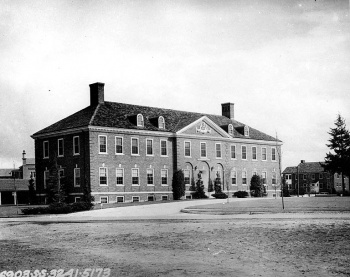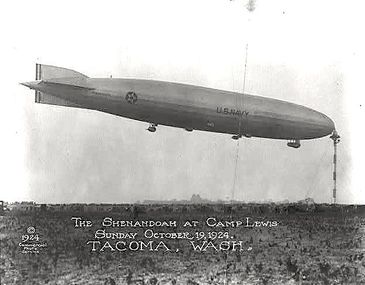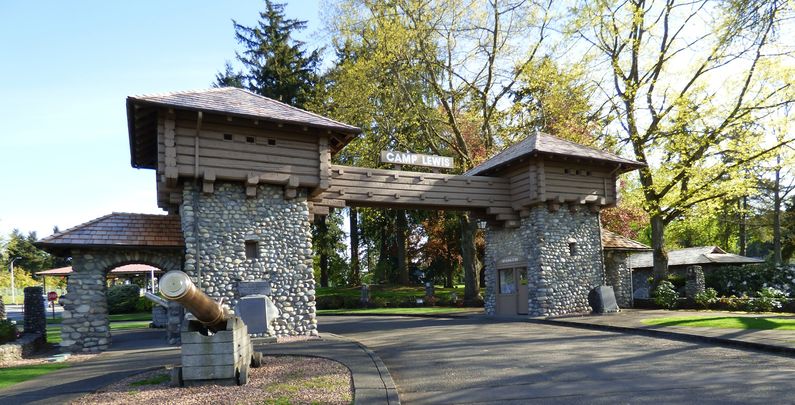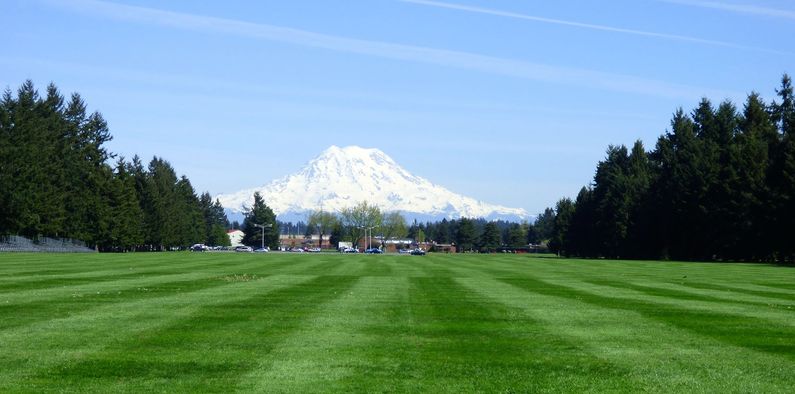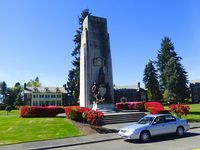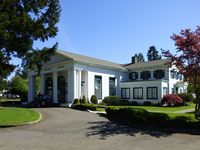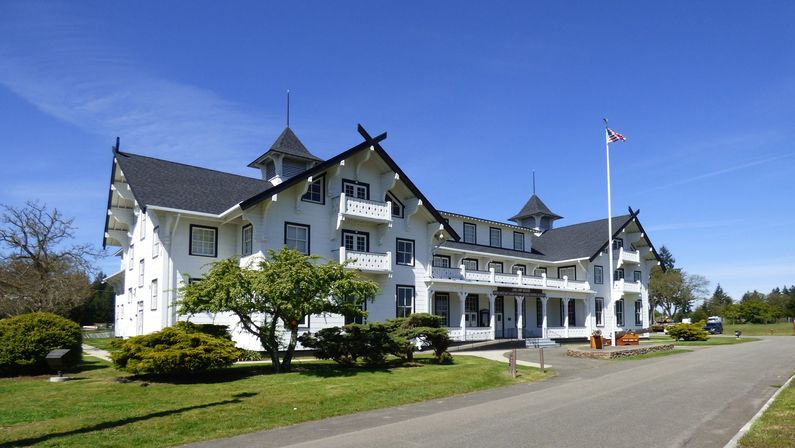Fort Lewis (1)
|
Fort Lewis (1917-Active) - Established 5 Jul 1917 during World War I as Camp Lewis on the site of a maneuver camp on American Lake, and named after Captain Meriwether Lewis from the Lewis and Clark Expedition of the 1804-1806 Corps of Discovery. Renamed Fort Lewis in 1927, now a component of Joint Base Lewis-McChord. Joint Base Lewis-McChord is an active military installation. World War I (1917-1918)In 1917, the Pierce County Electorate voted to bond themselves for $2,000,000 to purchase 70,000 acres for donation to the Federal Government for use as a military base. Camp Lewis (1) was the first military installation to be created as the result of an outright gift of land by the citizens themselves. Camp Lewis was established as one of 16 National Army Training Camps for World War I draftees for service overseas. See the World War I page for a list of WWI training camps. Construction began on 5 July 1917 under the supervision of construction quartermaster Captain David L. Stone who would come back in later years to command the post. In 90 days some 10,000 men built 1,757 buildings and 422 other structures, lighted, plumbed, and heated. Streets, roads, and railroad spurs were underway. When the buildings were completed, the workers subscribed $4,000 to build the main gate, which is still standing, however, moved from its original location due to the construction of the Interstate 5 highway during the 1950s. The camp was to have a capacity of about 46,000 officers and enlisted men that would become the 91st U.S. Infantry Division. The camp was mostly completed in November 1917 by the contractor Hurley Mason Company at an eventual cost of $ 8,600,000. The first commander of the camp was Major General Harry A. Greene who formed the 91st U.S. Infantry Division and initiated troop training. The 91st was organized on 25 Aug 1917 and departed for France in July 1918 The division distinguished itself in combat and suffered 5,778 casualties. The 91st returned to the U.S. in March-April 1919 and was demobilized. The 13th U.S. Infantry Division was in training when the war ended. With peace, military appropriations were sharply reduced and Camp Lewis fell into neglect. Tacoma civic groups and newspapers demanded that the War Department return the land. In march 1926 Congress passed a 10-year building plan to revitalize several Army posts, including Camp Lewis (1). The post was to have a new lease on life. On 30 Sep 1927 Camp Lewis was redesignated a Fort.
World War II (1941-1945)As World War II loomed in the future, Fort Lewis became more active. Between May 1939 and March 1941, the post population grew from 5,000 to 37,000 troops. To house the new soldiers, a 2000-acre North Fort Lewis complex was completed by August 1941. The bombing of Pearl Harbor sent a tremor of fear through the West Coast. Troops from Fort Lewis helped secure McChord Field, Camp Murray, and Fort Lewis itself. As time went on, the nervousness eased, and the post got down to wartime business. Before the end of World War II the post had trained the 3rd U.S. Infantry Division, 33rd U.S. Infantry Division, 40th U.S. Infantry Division, 41st U.S. Infantry Division, 44th U.S. Infantry Division and 96th U.S. Infantry Division, plus many brigades and smaller size units. A camp for prisoners of war was established in July 1943 and was continued for 3 years. In 1943, action was taken to enlarge the installation's training space. Over 18,000 acres south of the Nisqually River became known as Rainier Training Area. Cold War (1947-1991)At the end of World War II, Fort Lewis became home to the 2nd U.S. Infantry Division. In 1950 the 2nd became the first American division to leave the U.S. for fighting in Korea. By the fall of 1950, thousands of recalled reservists, draftees, and many units were arriving at Fort Lewis, and once again the housing situation became acute. Construction began on two new regimental areas east of Gray Army Airfield in January 1952. At the end of the Korean conflict, Fort Lewis became home to the 4th U.S. Infantry Division. The 4th U.S. Infantry Division departed for Vietnam in 1966. Fort Lewis became an Army Training Center for recruits and a personnel center for processing soldiers to and from the Pacific. Those functions had processed over 2 1/2 million soldiers, and trained over 300,000 men by the time they were closed in the summer of 1972 when Fort Lewis became the home of the 9th U.S. Infantry Division. In 1981, Fort Lewis also became home to I Corps. This senior headquarters is involved in the operation and training of active, reserve, and National Guard units from Alaska to Alabama, and from Pennsylvania to Puerto Rico. Current Status
Active military installation now known as Joint Base Lewis-McChord JBLM), includes the former McChord Air Force Base and Fort Lewis. The original Camp Lewis (1) main gate stands outside the current main gate and is accessible without entering the post. The excellent Fort Lewis Museum is accessible through the North post gate but access may be restricted. Check the Museum website for days and hours of operation and call ahead to determine access requirements. Main post features include the parade, officers row, and 91st. Division monuments and many historic buildings. Inquire at the museum for directions.
Sources:
Links:
Fortification ID:
Visited: 29-30 Apr 2014 | |||||||||||
